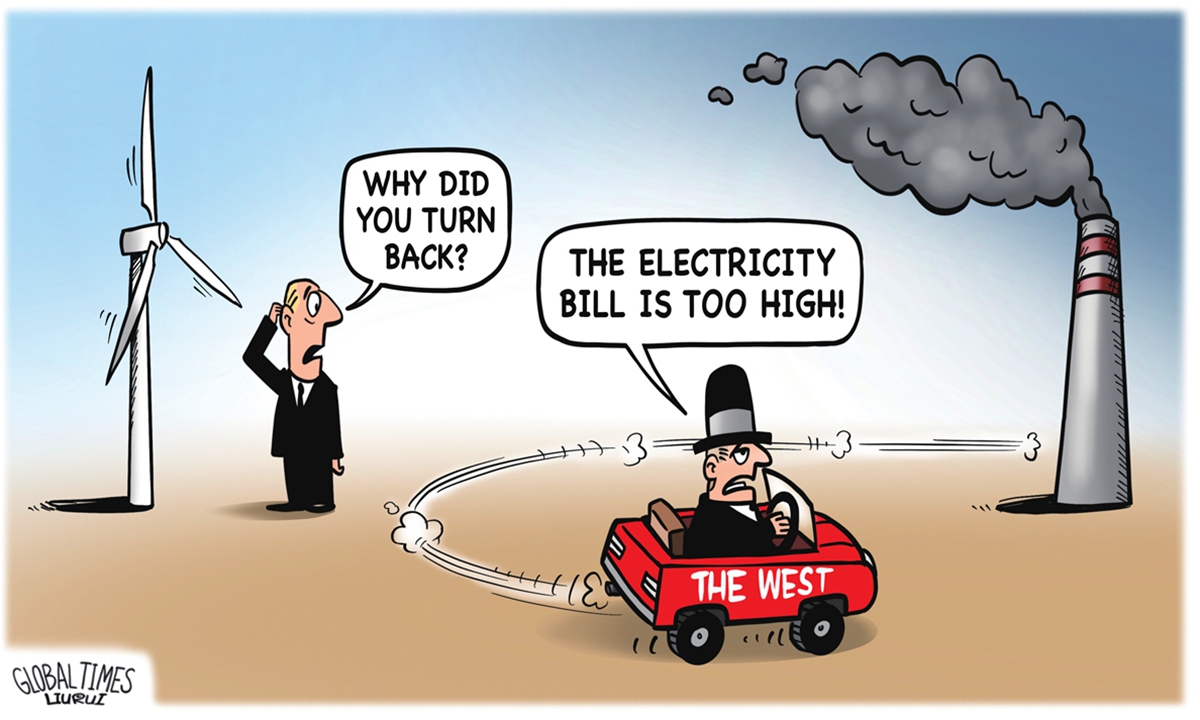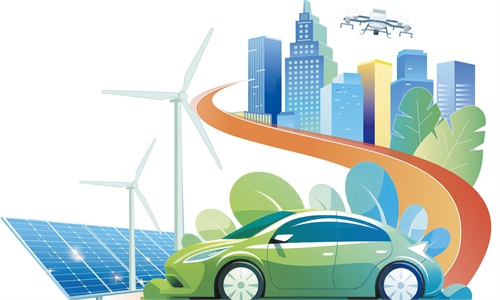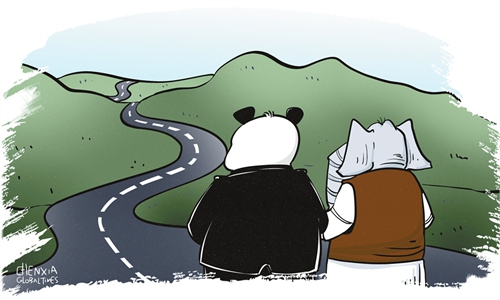
Illustration: Liu Rui/GT
The 2024 UN Climate Change Conference, also known as COP29, concluded with the adoption of a package of climate agreements on key issues such as the New Collective Quantified Goal (NCQG) for climate financing and issues relating to the global carbon market mechanism under Article 6 of the Paris Agreement. In addition, the conference also reached decisions on various issues, including the carbon trading mechanism, the implementation of the Global Stocktake results, the mitigation work program and the global adaptation goal.
In recent years, the "green cold war," which contradicts the goal of climate neutrality, has gained traction in the West. In September, the US significantly raised tariffs on a series of Chinese goods, imposing a 100 percent tariff on electric vehicles (EVs) and a 50 percent tariff on solar cells. In October, the EU followed suit, imposing tariffs of up to 35.3 percent on Chinese EVs for five years. These moves have sparked debates about whether waging a "green cold war" against China will benefit the US and Europe.
In the US and Europe, outdated infrastructure, a lack of groundbreaking technological innovations and high labor costs have put them at a disadvantage in the development of EVs. In response, they have erected barriers under "trade protectionism" to curb the market share of Chinese EVs. Against the global shift toward carbon neutrality, new energy products are poised to reshape geopolitical dynamics. EVs, which integrate innovations in energy, materials, the internet, big data and artificial intelligence, have the potential to drive upgrades in energy, transportation and communication infrastructure, becoming a key engine for sustained global economic growth. The US and Europe are well aware of this trend.
Although current EV production in the US and Europe is rather slow, once technological bottlenecks are overcome, their industries could experience rapid growth. They are relying on reshoring industries to create local jobs while securing control over the supply chain of new energy products, such as EVs.
This strategy is intended to position them advantageously in future global competition. It is reported by the Financial Times recently that the EU is planning to force Chinese companies to transfer intellectual property to European businesses in return for EU subsidies as part of a tougher trade regime for clean technologies. This would begin with battery manufacturers and eventually expand to other subsidized green enterprises.
China's consistent stance on climate change and green transformation has demonstrated its role as a responsible major power in global climate action, from comprehensive green transformation planning to policy implementation and industry development. As a global leader in clean energy technology, China has showcased its contributions to the energy transition. International automakers must deepen their cooperation with Chinese manufacturers to expand their market share both in China and globally.
The West's alert on Chinese EVs has shifted from economic "trade wars" to a global "green cold war." This shift could reshape geopolitical dynamics, global environmental governance, cultural exchanges, technological progress and societal advancements for years to come, hindering the achievement of the Paris Agreement goals and slowing a fair global transition.
To achieve global green transformation, the path forward requires the following actions. First, developed countries need to open their markets, enhance cooperation and resolve differences through friendly negotiations rather than resorting to trade barriers. Second, for new energy producers, it is essential to regulate systems and supervision, prioritize innovation, strengthen intellectual property protection, and accelerate integration into global value chains. Third, a more equitable global trade framework is needed, with expedited green trade liberalization and the establishment of a just international order. Fourth, in the green transition of the global economy, both developed and developing countries should establish a system framework conducive to climate neutrality in climate action. They are also suggested to also offer preferential treatment to low-carbon and zero-carbon products in international trade. This aligns with the goal of a fair global transition and will bring benefits to all nations.
In general, the "green cold war" seeking to build barriers in global green cooperation and economic development represents a setback in global progress.
The author is a professor at the Institute for Sustainability of Huzhou University and a researcher at the Budapest Centre for Long-term Sustainability. opinion@globaltimes.com.cn



